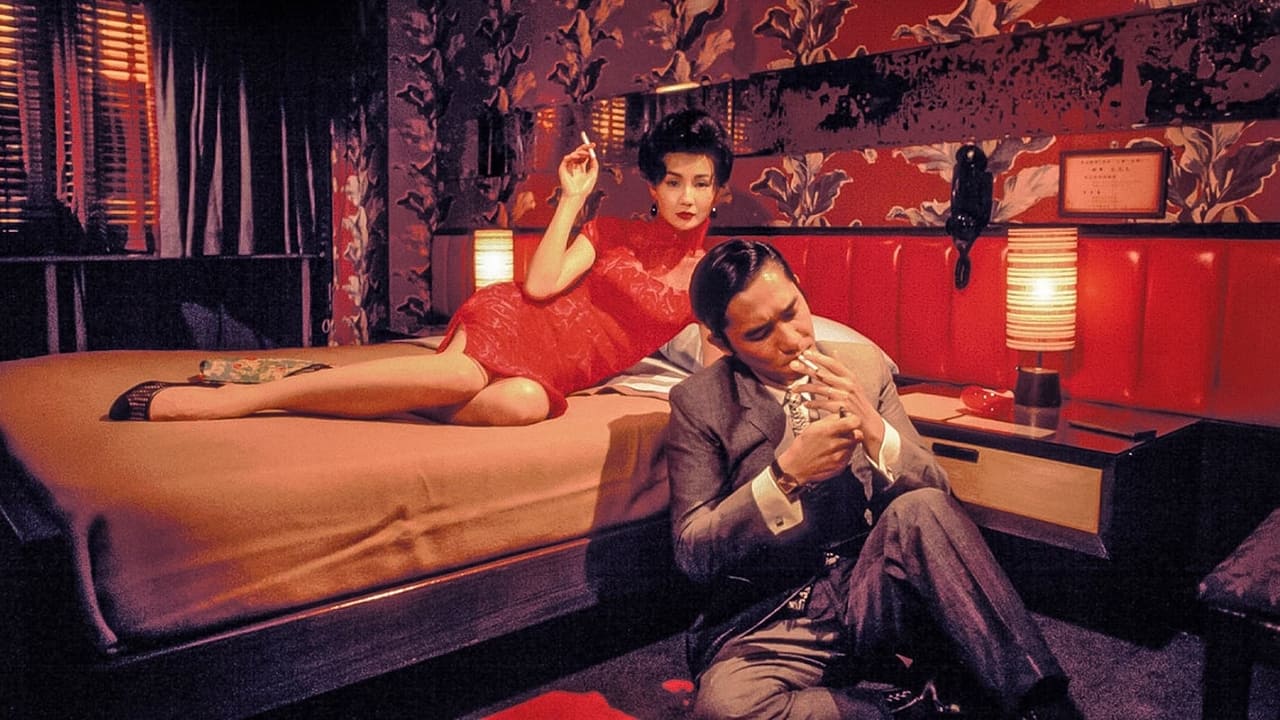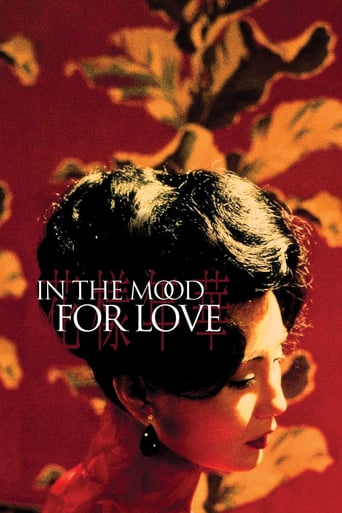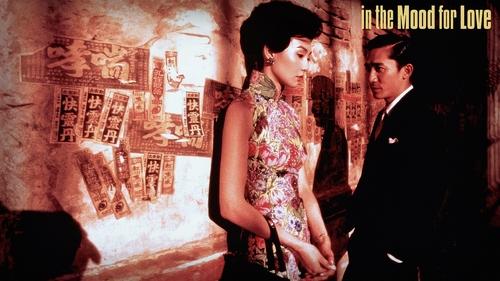



Am I Missing Something?
All of these films share one commonality, that being a kind of emotional center that humanizes a cast of monsters.
View MoreYes, absolutely, there is fun to be had, as well as many, many things to go boom, all amid an atmospheric urban jungle.
View MoreBlistering performances.
I Love this masterpiece by Wong Kar Wai. The cinematography, The Acting, The music especially in this film just incredible. Once you heard "Yumeji's Theme" it never leaves you after the film ends. A unique experience for romantic theme. The noodles scene, the smoking scene, the camera works made me fall in love with this art house cinema by WKW. There's no sex scene and there's no dramatic scene but we can feel the love in this film. The film itself nothing more than a tragedy and ironic even though sometimes there was funny scene between Tony Leung and Maggie Cheung characters. Not many people can enjoy this type of film but if you do i believe you'll feel the same that this is one of the best romantic film ever. 9 out of 10.
View MoreOr if you need to just set up your mood for "LOVE" - watch this! Seriously!The opaque and ashen ache of stolen moments, and the often painful passage of time hangs heavy upon Hong Kong filmmaker Wong Kar-Wai, particularly in his masterpiece from 2000, In the Mood for Love. As anthem to the agony and ecstasy of close-lipped affection, this film, more than any other in Wong's considerable oeuvre, is a Proust-like conjuration of memory and misgiving.The second instalment of a rather loose trilogy that began with Days of Being Wild (1990) and concluded with 2046 (2004), The Mood unravels in Hong Kong, 1962, cantering on two neighbours living in a close quarters tenement house.Maggie Cheung and Tony Leung shimmer as Su Li-Zhen and Chow Mo-wan, the neighbours in question, who rightly suspect their respective spouses are having an affair. Leung and Cheung, it must be said again and again, are wondrous in these roles, and are every bit as iconic as Bogie and Bacall before them. The fugitive motions and fleeting looks of chiming clocks, the whirling of smoke rising from a cigarette, and the sentimental croon of Nat King Cole super-abound Wong's elegant period drama. Mr. Chow is something of a journalist, Mrs. Chan is a secretary for a shipping company, and soon the two of them will find themselves in the ephemeral fog of anguish, contrition, and the sweetest nostalgia. As next-door neighbours in close approximation they soon discover that their spouses are always absent at the same time. Their lives intersect more and more and soon a strange and strained relationship forms between them both. As a sensual memory piece In the Mood for Love is luminous, and the slowly simmering romance therein is an inextricable blending of physicality and formalism.Initially, it was supposed to be made fast, dirty, and on the cheap, in a fashion not unlike Chungking Express (1994). Maybe it was inevitable that this project, a long gestating follow-up to Days of Being Wild, concerned with pain and longing, should inflict similar damage on its designer, for Wong's anguish is palpable in every loving, wistful, and spectacularly detailed frame. The bright colours and unconventional compositions that Wong's name became synonymous with in the 1990s is here faultlessly fulfilled, even when hemmed in. The film renders on an intimate scale the intersection of misery and euphoria, of romance in retrospect, and makes it into cinema's saddest song of love lost to history.Just so you know: The film's original Chinese title, meaning "the age of blossoms" or "the flowery years" – Chinese metaphor for the fleeting time of youth, beauty and love – derives from a song of the same name by Zhou Xuan from a 1946 film. The English title derives from the song, "I'm in the Mood for Love." Give it a watch, you will regret nothing.
View MoreOne of the finest film made by the director Wong kar wai. this film beautifully tells the story through marvellous cinematography and production design. every frame is like a painting for Wong kar wai as he has delicately planned and shot. Actors performance are based on the improvisation made on real dialogue/script written during the shoot which also comes as natural conversation. Wongkarwai has used his content and knowledge very well along with the detailing in the story such as change in the weather, talking about certain food items etc. Lighting of the film also addressed smartly the mood and emotion of the character and location. High contrast with good color make you really mad with your eyes. Approach of the characters towards the situation is also a key to set the mood correct.
View MoreThis movie tells a simple tale: a woman and a man whose spouses have an affair come to each other for consolation. They slowly develop feelings, but decide to part in the end all for the greater good. However, what makes this movie such a masterpiece does not lie in the story, but rather in its effortless capability to convey emotions and mood. We are put in the main characters' perspectives throughout the movie.The characters' desire, pain, empathy and connection can be felt through still images and camera movements. Every frame tells its own story. The long, silent shots create a sense of longing and loneliness. Subtle body movements - sideways glances, slowly intertwined hands, the way they weigh their questions and drop their eyes or repetitive actions and conversations are never boring, because they make the audiences yearn for more.This movie is utterly delicate, beautifully layered, masterfully crafted to be brimful with feelings. It is slow-burnt with little actions and offers no resolution; but remain one of my most favorite romantic movies of all time for its lush cinematography and the way it tells a tale of noble unrequited love that could have been, but never was.
View More